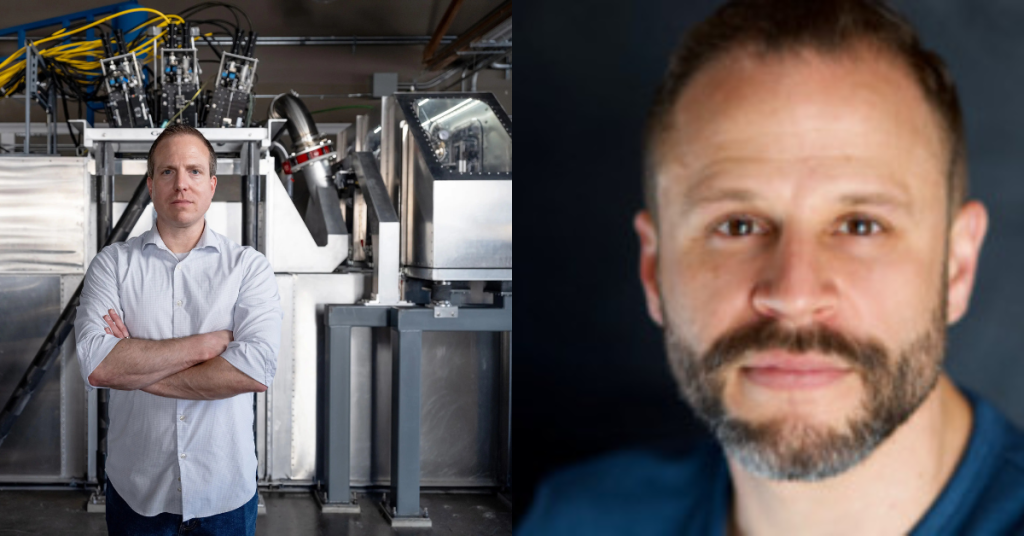Two former SpaceX engineers, Erik Palitsch and TJ Ronacher, have secured $14 million in funding from Nvidia and Boeing to advance their innovative approach to 3D metal printing through their startup, Freeform. This funding aims to scale their new method, which promises to address some of the longstanding challenges in the metal additive manufacturing industry, including complexity, cost, and precision.
The Promise of Metal 3D Printing
3D printing with metal has been recognized for its potential to revolutionize manufacturing across various industries, from aerospace to automotive. However, traditional metal printing methods have struggled to achieve the consistency and efficiency needed for widespread adoption. According to Palitsch, who serves as CEO, the technology has often been hampered by three primary issues: inconsistent quality, slow production speeds, and exorbitant costs associated with the machinery.
During their time at SpaceX, Palitsch and Ronacher witnessed the promise of metal 3D printing firsthand while also confronting its limitations. They understood that if they could operationalize a more effective process, it could lead to significant advancements in manufacturing capabilities.
A New Approach to Metal Printing
To overcome the obstacles they identified, the founders of Freeform have proposed a radical shift in the business model for metal printing. Instead of selling individual machines and requiring customers to navigate the complexities of the technology, Freeform aims to offer printing as a service. This allows them to develop a closed-loop process using custom-built machinery that is designed from the ground up.
“The mistake many companies make is treating metal additive manufacturing like CNC machining,” Palitsch explained. “They package a printer and expect users to become experts on their own. Our approach focuses on creating an automated factory environment that leverages advanced technology.”
Advanced Monitoring and AI Integration
A key feature of Freeform’s innovation is its use of real-time monitoring and artificial intelligence to enhance the printing process. Their closed-loop system incorporates high-speed computer vision that operates at the microsecond level, providing immediate feedback and adjustments during printing. This technology helps to mitigate quality issues and enables the production of complex geometries at a faster pace.
“We had to build this entire system ourselves, using technologies that have only recently become available,” Palitsch noted. The result is a printing process that is not only more reliable but also adaptable to a variety of manufacturing requirements.
The integration of AI is particularly crucial for managing the feedback loop. The machine-learning model is designed to monitor and adjust the printing process dynamically, ensuring that it meets the high standards required for applications in demanding sectors like aerospace and automotive.
Building a Unique Dataset
One of the standout features of Freeform’s approach is the establishment of what they claim to be the largest metal additive dataset in the world. By focusing on high-quality telemetry and data collection, Freeform can create models that improve their printing processes iteratively. This ability to generate and utilize vast amounts of data sets them apart from competitors.
According to Ronacher, “To control the metal printing process effectively, we needed datasets that no one had ever deployed before. We focused on creating curated and self-labeled datasets that allow our models to evolve.”
This systematic approach has enabled Freeform to build a robust platform that combines GPUs and FPGAs to achieve the necessary speed for real-time adjustments. The company’s technology effectively resembles “AI on steroids,” allowing for fast inference times essential for the high-stakes world of metal additive manufacturing.
Partnerships with Industry Giants
The $14 million investment from Nvidia and Boeing will play a crucial role in Freeform’s expansion plans. Both companies provide unique advantages: Nvidia offers access to high-performance computing hardware, while Boeing is expected to facilitate connections within the aerospace supply chain, including the potential for significant purchasing agreements.
Palitsch mentioned that Freeform is already working with clients across various sectors, including aerospace, automotive, industrial, and energy. Although specific client names were not disclosed, the company is reportedly engaged in projects involving rocket engine components and exhaust parts for Formula 1 cars.
Future Growth and Development
With the new funding, Freeform plans to scale its operations, develop next-generation printers, and expand its team by hiring approximately 55 new employees over the next year. Palitsch acknowledges that transforming their vision into a practical reality has been a gradual process, but he believes that their careful, methodical approach has been key to their success.
Reflecting on their journey, he stated, “It was a slow transition, but with just six people, we built the fastest laser melting platform on the planet, including the hardware and software for it. We accomplished things that many believed were impossible.”
Conclusion
Freeform’s ambitious initiative to redefine metal 3D printing presents a promising avenue for overcoming the historical challenges associated with this technology. By leveraging advanced AI and a data-driven approach, the company aims to provide a reliable, efficient, and scalable solution for industries that rely on metal manufacturing. With significant backing from industry leaders and a clear vision for the future, Freeform is poised to make a substantial impact in the evolving landscape of additive manufacturing. As they continue to refine their processes and expand their capabilities, the implications for industries reliant on metal components could be transformative.
